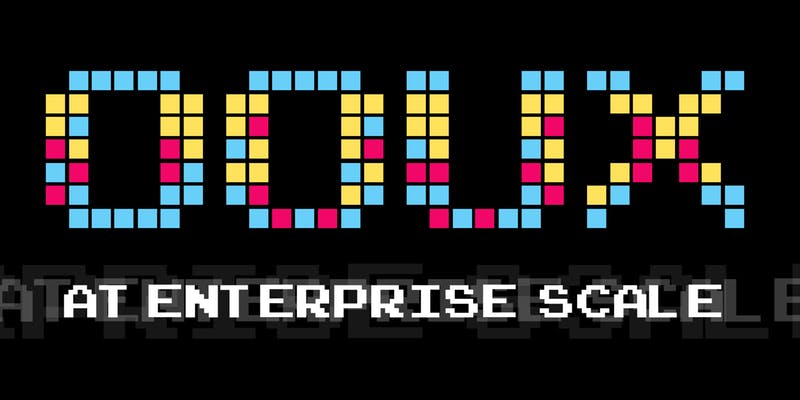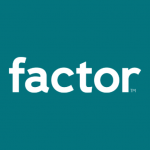
Object-Oriented UX at Enterprise Scale: A Full-Day Workshop
Learn the fundamentals of Object-Oriented UX and how to implement OOUX (or any systemic information architecture project) at scale.
Workshop: Fri, Sept 27, 2019
Time: 9:00 a.m. to 4:00 p.m.
Instructor Team: Bram Wessel, Erica Chao, and Sophia V. Prater
Registration: $395
Location: School of Visual Concepts, Seattle, WA
About the Workshop:
In this two-part workshop Factor is proud to join forces with Sophia V. Prater.
First, we’ll learn the ropes of Object-Oriented UX from Sophia, who’s brought her methodology to Mastercard, Delta Airlines, Macy’s, Intercom, CNN Digital, and more.
After lunch, Factor will show us how we make any ambitious IA or OOUX project successful, even within the large, complex, and resistant-to-change industries.
Factor is VERY Excited to Partner with Sophia Prater
Sophia is the chief evangelist of object-oriented UX, a methodology she started popularizing in 2013. She teaches OOUX at conferences, within companies, and through 1-on-1 coaching. She leads the Atlanta chapter of Ladies that UX and is the creator of the UX Hustle Summit Conference and host of the UX Hustle Podcast.
Sophia led UX efforts for clients such as AT&T, Blue Cross Blue Shield, Athena Healthcare, Coca-Cola, the IRS, and the Australian Tax Office. As a UX designer at CNN.com, she designed the responsive 2012 election night experience viewed by over 200 million people. Today, Sophia focuses on bringing the magic of OOUX to companies and teams around the world.
Tentative Workshop Agenda
FOUNDATIONS OF OBJECT-ORIENTED UX (9:00a – 12:00p)
OOUX is a design philosophy that helps designers create experiences that are aligned to the business model, the user’s mental model, and the back-end database model. Misalignments among these worlds are often the cause of many communication headaches for the product team—and usability headaches for the end users.
But these misalignments can be avoided by answering these four fundamental questions:
- What are the OBJECTS?
- What are their RELATIONSHIPS?
- What CAPABILITIES do they afford?
- What are their ATTRIBUTES?
Objects, Relationships, Capabilities, Attributes—meet the ORCA process. When your team gets crystal clear on the answers to these questions before designing a single wireframe, you’ll reduce painful rework and extraneous design complexity. But most importantly, you’ll release useful, usable and future-proof products.
Key Takeaways:
- Learn the psychology of object-oriented UX and why it speaks to our lizard brains.
- Understand four biggest user experience fails—and how you can avoid them.
- Practice the first ORCA sprint: the Complexity Sprint. With a rainbow of sticky-notes and sample design challenge, you’ll identify objects, build a relationship model, brainstorm capabilities, and build an object map to structure your objects’ attributes.
- Get an overview of ORCA sprints 2, 3, and 4: the Requirements Sprint, The Prioritization Sprint, and the Prototyping Sprint.
HEALTHY BOX LUNCH & NETWORKING (12p)
OK, taxonomy nerds, let’s get to know each other, take a break, and perhaps get some fresh air if the weather is nice!
ENTERPRISE IA & TAXONOMY (1:00 – 4:00p)
During the second half of the day, Bram Wessel and Erica Chao of Factor will show you how to take what you created in the morning session and implement it in your enterprise. One reason we like OOUX is that it focuses organizations on aligning business goals, user information needs, and back-end systems. We’ll show you how to socialize your model with stakeholders, be they sympathetic or skeptical, aligning your organization around a core set of information assets. We’ll also show you how to navigate scale and complexity challenges that organizations of every size face.
Key Takeaways:
- Learn how to tell a molehill from a mountain, and how to adjust with scale.
- Understand your organization’s information topology so you can design a model that allows people and platforms to effectively share information.
- Map your Objects, Relationships, and Attributes across systems and processes, giving your organization new information management Capabilities.
- Determine whether centralized or distributed management is best for your Objects.
- Learn how measurement and governance can make your information ecosystem improve over time, keeping it durable and sustainable.
